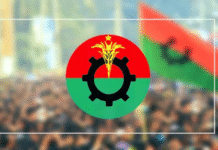Sadeq Khan
Last weekend, “The Great Indian Tamasha” was staged in Dhaka, not by dummy puppets of New Delhi Television (NDTV), but by live players of Delhi-Dhaka Diplomatic Community (DDDC). The show was airily named Indo-Bangla High Commissioners’ Summit, to the chagrin of some other diplomats and academics who questioned the summiteers’ swagger of plenipotentiary status that they no more enjoy after their retirement or alternative assignment.
Albeit they headed their respective missions while in service, they were but the eyes and ears for their respective governments in their assigned jurisdiction and not the policy-making brains or the top diplomat of respective country whose directions they obeyed. As such, critics say, their posing as summiteers does not make much sense, however capable, wise and experienced they jointly or severally might shine in Track-two diplomacy to which they have now lent themselves.
Well-intentioned exercise
Be that as it may, the exercise is deemed to have been well-intentioned and focused on putting Delhi-Dhaka relations on a steady course based on ‘mutual trust, amity and co-operation in the best interests of the people of Bangladesh and India’ by ‘protecting their democratic values and rights’. (vide their Dhaka Declaration). To find common ground for ‘best interests of the people of Bangladesh and India’ would be a tall order to politicians indeed of either country and both countries put together.
The ‘summiteers’ have nevertheless found keys to two openings, by heavy emphasis on economic engagement and intense cooperation on security matters. While the second opening, as long as it is not abused by doctrinaire, diversionary or hegemonic political motives, is most welcome and already in process, the first one particularly expectation of equal, equitable, inclusive and sustainable growth based on social justice and respect, may prove elusive on account of divergence in development dynamics, market conditions and global parameters of the two countries.
SAARC preferential market bids failed for the same reasons. Expectation of ‘free and increased flow of goods and services, including investment and financial services between the two countries, as envisaged by the Dhaka Declaration, may simply remain a far cry. No harm in wishing well though. More pertinent question is: will the politicians, or even the bureaucrats of South Block in Delhi and Foreign Office in Dhaka care to heed beyond what relates to their tasks on the table?
The top diplomat of Bangladesh, a seasoned plenipotentiary turned politician and elected member of parliament, Foreign Minister Abul Hasan Mahmood Ali had graciously welcomed the ‘summiteering’ assembly as beginning of a fascinating journey towards strong bond between the two neighbours: “All the pending issues will get resolved through this summit by promoting strategic dimensions led by foreign policymakers of the two developing countries.” He acknowledged that of Prime Minister Sheikh Hasina in reshaping friendly ties with India, he specified that there was a crisis in mutual trust between the two after the assassination of Sheikh Mujibur Rahman. He claimed: “Relations with the Narendra Modi-led government are sustained.”
Uncertainty of ‘continuity’
During deliberations in the assembly, Veena Sikri, ex-Indian envoy (2003-06) in Dhaka, alleged that the Bangladeshi media published misconceived and disappointing news about Indian foreign policy on Bangladesh after Narendra Modi assumed power. “Governments in India change but positive attitude to Bangladesh never changes.”
Off the floor taking questions from some reporters, former Indian High Commissioner in Dhaka, Pinak Ranjan Chakravarty (2007-2009) said India would like to see return of an “ideal democratic” environment in Bangladesh: “Who doesn’t want a good election, truly a good opposition party and a real democratic environment in Bangladesh? As a democracy, India also wants that.”
On Jan 5 January elections, he said, “It’s the internal matter of Bangladesh as to how it conducts its elections. We will have good relations with whichever government you elect to power. It’s not India’s look out to see which are the parties contesting the election and which are refraining from it. It’s for the people of Bangladesh to take a call on this.” He maintained that India’s bilateral ties with Bangladesh were good even when there was a military regime in Dhaka.
Some knowledgeable persons from amongst political and media circles in Dhaka with fair knowledge of the policy-making lay-out in New Delhi detected in such remarks of the aforesaid two Indian diplomats, who served in Bangladesh through critical times of transition, some uncertainty in their minds about the “continuity” under Modi of the fundamentals of Bangladesh policy so far pursued by India.
They said all countries, USA, Europe, China, India or Pakistan work with whichever government is in power in any country with which they have diplomatic relations. Bipartisan or multi-party consensus in foreign policy is also not peculiar to India alone, but pursued by various powers of the world “in continuity” unless there is a paradigm shift. But with regime change, emphasis on priorities and leadership equations change.
Spin on illusion of continuity
Modi waves have been breaking ashore in Japan-China-USA-Myanmar-Australia, effecting new chemistry of global leadership equations and resurgence of India’s power projection in a political way with his political team and some disconnect from South Block’s traditional trappings. Indeed India’s External Affairs Ministry is known to have been very powerful in maintaining “continuity” of their policy-prescriptions on all governments in Delhi heretofore. “Modi”-fication of the Indian Security State appear to have broken out somewhat from the dotted lines and gainfully so.
It is also obvious from routine utterances of Modi ministers and Modi himself that unresolved issues with Bangladesh is pending build-up of India’s internal consensus, for which according to Ambassador Sikri the Modi government has been more pro-active than the previous governments of Manmohan Singh, that the Modi bandwagon did not as yet have time or inclination to turn to Bangladesh. There are other signs and Modi-minion utterances in Eastern Indian parts of Assam and West Bengal which suggests Ambassador Sikri’s assurance that India’s “positive attitude to Bangladesh never change” has to be taken with a pinch of salt.
Apart from uncertainties over unresolved land-border delimitation and Teesta water-sharing issues, “Modi”-fied Indian power’s attitude to Bangladesh may very well be drastically modified by fast-changing geo-political trends, like US rebalance in Asia seeking increased unilateral naval presence in the Bay of Bengal, China’s brinkmanship in military manoeuvres at Arunachal border, or within India itself an adverse political regrouping in the East between regional heavyweights of Trinamool, Left and Left of Centre politicians of Tripura, Meghalaya, West Bengal, Bihar and Orissa. Indeed some suggest that it is precisely these uncertainties over possible Modi policy change towards Bangladesh that has prompted the South Block in Delhi to persuade the former Indian High Commissioners to engage in track-two diplomacy of “summitering” in Dhaka, to spin out the illusion of continuity.
Source: Weekly Holiday









